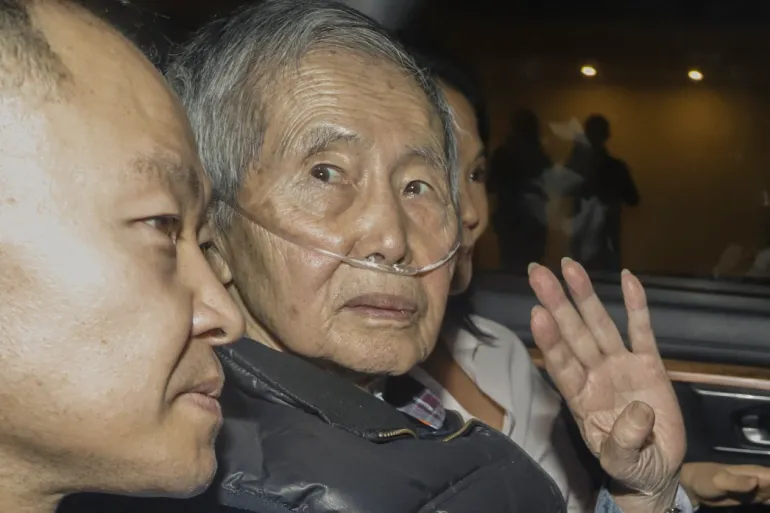FORMER Peruvian President Alberto Fujimori, who was serving a 25-year prison term for human rights abuses during his decade-long rule in the 1990s, has been freed after the country’s highest court restored a contentious 2017 pardon.
Fujimori, 85, was released from Lima’s Barbadillo prison on Wednesday, a day after the court ruled to restore the pardon on humanitarian grounds, despite criticisms from the Inter-American Court of Human Rights (Inter-American Court) and victims’ families.
Fujimori had been in prison for 16 years after being extradited from Chile in 2007.
Crowds of supporters gathered outside the jail, as Fujimori was greeted by his two children – Keiko, a three-time failed presidential hopeful, and Kenji, a businessman – before being driven away in a grey truck.
“It was time for this injustice against Fujimori to end, thanks to him, our country is on its feet,” said Catalina Ponce, a Fujimori supporter waiting outside the prison, earlier in the day.
Fujimori, who is of Japanese heritage and led the country from 1990 to 2000, has divided Peruvians like few other former leaders.
Supporters believe he saved Peru from the Shining Path armed group and economic collapse.
Critics, however, say he abused democracy and committed atrocities during his government’s battle against the Shining Path.
The former president was convicted in 2009 of ordering the killing of 25 people in 1991 and 1992, but was given a pardon in December 2017 by former President Pedro Pablo Kuczynski.
The pardon had been repeatedly annulled or suspended by lower courts after pressure from the Inter-American Court and victims’ families, until this week’s constitutional court ruling.
Shortly after the order, the president of the Inter-American Court asked Peru to stop the pardon until it had “all the necessary elements” to analyse whether conditions were met.
Fujimori was impeached in November 2000 on grounds of “moral incapacity” and also accused of corruption, a day after he had fled to Japan, where his parents were from, and resigned by fax. He later went to Chile, from where he was eventually extradited.
These days, he suffers recurrent respiratory, neurological and hypertension problems and has had tongue cancer.







